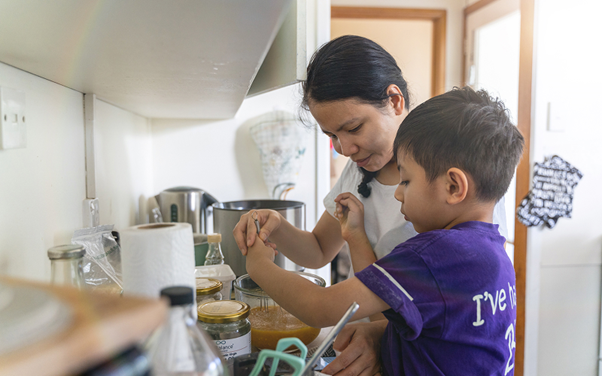
6 Challenges Faced by Indonesian Maids in Singapore
Hiring a maid is no longer a luxury but a necessity for many households in the city-state. Due to both parents working, children needing care, and elderly family members requiring attention, domestic help has become part of daily life. Among the various nationalities, the Indonesian maid remains one of the most sought-after. But behind the uniform and daily chores lies a very human story: one of adjustment, sacrifice, and resilience. Recognising the challenges they face and providing genuine support can transform the employer-helper relationship from transactional to respectful and collaborative.
1. Language and Communication Barriers
The first hurdle many Indonesian helpers encounter is language. While Bahasa Indonesia is their native tongue, English is the primary working language in Singaporean households. Miscommunication can easily lead to mistakes in cooking, childcare routines, or safety matters. Employers sometimes grow frustrated, while helpers feel anxious about making errors. A little patience and effort go a long way—using simple phrases, showing rather than just telling, or even picking up a few Bahasa words can make daily interactions smoother. Employers who invest in language training or simply practise consistent communication often find their helpers gaining confidence much faster.
2. Cultural Adjustment and Social Isolation
Moving from a village or small town in Indonesia to the fast-paced environment of Singapore can be overwhelming. Food, religion, and even the rhythm of life differ sharply. Loneliness can hit especially hard for a first-time Indonesian maid. They may spend most of their time indoors, away from familiar community ties. Employers can ease this transition by being culturally sensitive: allowing time for prayers, showing interest in their traditions, or even sharing familiar meals occasionally. Encouraging rest days, where they can meet friends or attend community gatherings, also helps reduce isolation and fosters a healthier state of mind.
3. Workload and Pressure
It is no secret that domestic work can be demanding. A maid in Singapore often juggles cooking, cleaning, childcare, and sometimes elderly care—all under one roof. Add to that long hours and the emotional responsibility of sending money home, and the pressure can feel relentless. Burnout is common if expectations are not managed. Employers can make a real difference by being clear about priorities, distributing tasks realistically, and acknowledging that rest is as important as productivity. A helper who feels respected and not overworked is more likely to perform consistently and remain loyal.
4. Homesickness and Emotional Stress
Many Indonesian domestic workers leave behind young children or elderly parents to work in the city-state. While the financial rewards may be better, the emotional toll is heavy. Missing milestones like birthdays, weddings, or even simple family dinners can weigh on them deeply. Employers can show empathy by allowing regular phone or video calls home. Small gestures such as checking in on their well-being or offering a listening ear can go a long way in reducing emotional stress. Once helpers feel supported emotionally, they are better able to cope with the demands of their role.
5. Financial Management Difficulties
The main motivation for many helpers to work abroad is to earn and remit money. Yet not all are prepared for the responsibility of managing their finances. Some fall into debt traps, while others may spend impulsively. Employers can play a supportive role by encouraging savings habits or directing them towards financial literacy workshops offered by NGOs in the city-state. Such empowerment helps reduce long-term stress and equips them with better control over their hard-earned income.
6. Fair Treatment and Legal Rights
The city-state has established strict guidelines under the Ministry of Manpower to protect domestic workers, but gaps in awareness and enforcement still exist. Issues like unpaid wages, insufficient rest days, or inadequate living arrangements occasionally arise. Employers who familiarise themselves with these laws and uphold fair practices create an environment of trust. Ensuring contracts are respected, offering private and safe accommodation, and adhering to agreed conditions are not only legal obligations but also a matter of basic human dignity.
Conclusion
The life of an Indonesian maid in the city-state is often filled with challenges that go unnoticed: language barriers, cultural shifts, emotional sacrifices, and financial pressures. Employers who acknowledge these struggles and extend genuine support can make a world of difference. Clear communication, cultural sensitivity, manageable workloads, and fair treatment not only improve working relationships but also contribute to a happier, more harmonious household. At the end of the day, domestic helpers are not just workers; they are individuals who deserve respect, empathy, and dignity.
Contact JForce and let us help you connect with a reliable maid.
